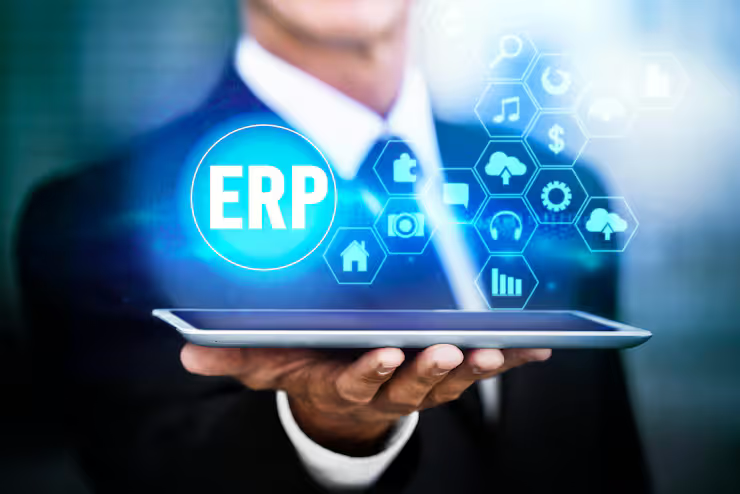Explore ERP Software: Importance, Updates, Tools, and FAQs
Enterprise Resource Planning (ERP) software is designed to help organizations manage and integrate the main aspects of their business. This includes processes such as accounting, procurement, project management, risk management, compliance and supply chain operations
The ERP system has become increasingly important due to increasing complexity in business operations and increasing digital changes. Companies today require real-time data, spontaneous collaboration and skills the ability to scale processes.
That affects it:
-
Small and medium-sized businesses (SMB) are looking to streamline operations.
-
Larger companies require centralized data management in global activities.
-
Manufacturers and distributors aim to improve the inventory and supply chain visibility.
-
Service providers require a better resource plan and project tracking.
Key Problems Solved:
-
Data silos across departments
-
Inaccurate or delayed reporting
-
Inefficient manual processes
-
Compliance and audit issues
-
Poor customer service due to disconnected workflows
According to a 2024 Gartner report, more than 60% of companies plan to switch to Cloud ERP by the end of 2025 due to cost savings and flexibility.
Laws, Regulations and Compliance Affecting ERP
ERP software will follow national and international data protection and economic compliance standards. Here is described how rules affect ERP:
-
GDPR (General Data Safety Regulation): EU customers require ERP system to manage transparent and safe personal information.
-
Sox (Sarbanes-Oxley Act): US companies should ensure that ERP audit trails are safe and financial data are reported precisely.
-
GST Compliance (India): ERP tools used in India should support goods and submission of goods and invoice tracking.
-
HIPAA (USA): The ERP system for the health care system must follow privacy laws for patient data.
-
IFRS and GAAP: ERP Economic modules will support standardized accounting practices globally.
ERP sellers often provide compliance-Taiyar solutions, reduce legal risks and reduce audit failure for companies.
Free Resources
-
ERP implementation template (Google Sheet, Excel)
-
ROI calculator for ERP investment
-
Open-SUS ERP society and Githb Depot
-
ERP Comparative Equipment (Capterra, G2, Software Council)
Frequently Asked Questions
What is the main goal of ERP software?
The main goal of ERP is to centralize business operations, increase cooperation and give real-time insight into departments from the same platform.
How long does ERP take implementation?
The implementation time varies depending on the size and complexity of the organization. For small layouts can be used from 3 months for large companies from one year.
Can small businesses use ERP software?
Yes. Many cloud-based or open sources ERP solutions provide affordable price models for small businesses.
Is Cloud ERP safe?
Modern clouds use strong encryption, user authentication and correspondence standards such as ISO and SOC to ensure data security.
How is ERP different from CRM?
ERP contains several commercial processes including finance, inventory and HR, while CRM (Customer Relations Management) is especially focused on customer relationships and management management.
Final Thoughts
ERP software is no longer a luxury, but is a need for companies that try to improve efficiency, compliance and decision. As technology develops, you can choose the right ERP solution and be informed of their trends, rules and will help the equipment organizations to be competitive and fit in the rapidly changing business scenario.
